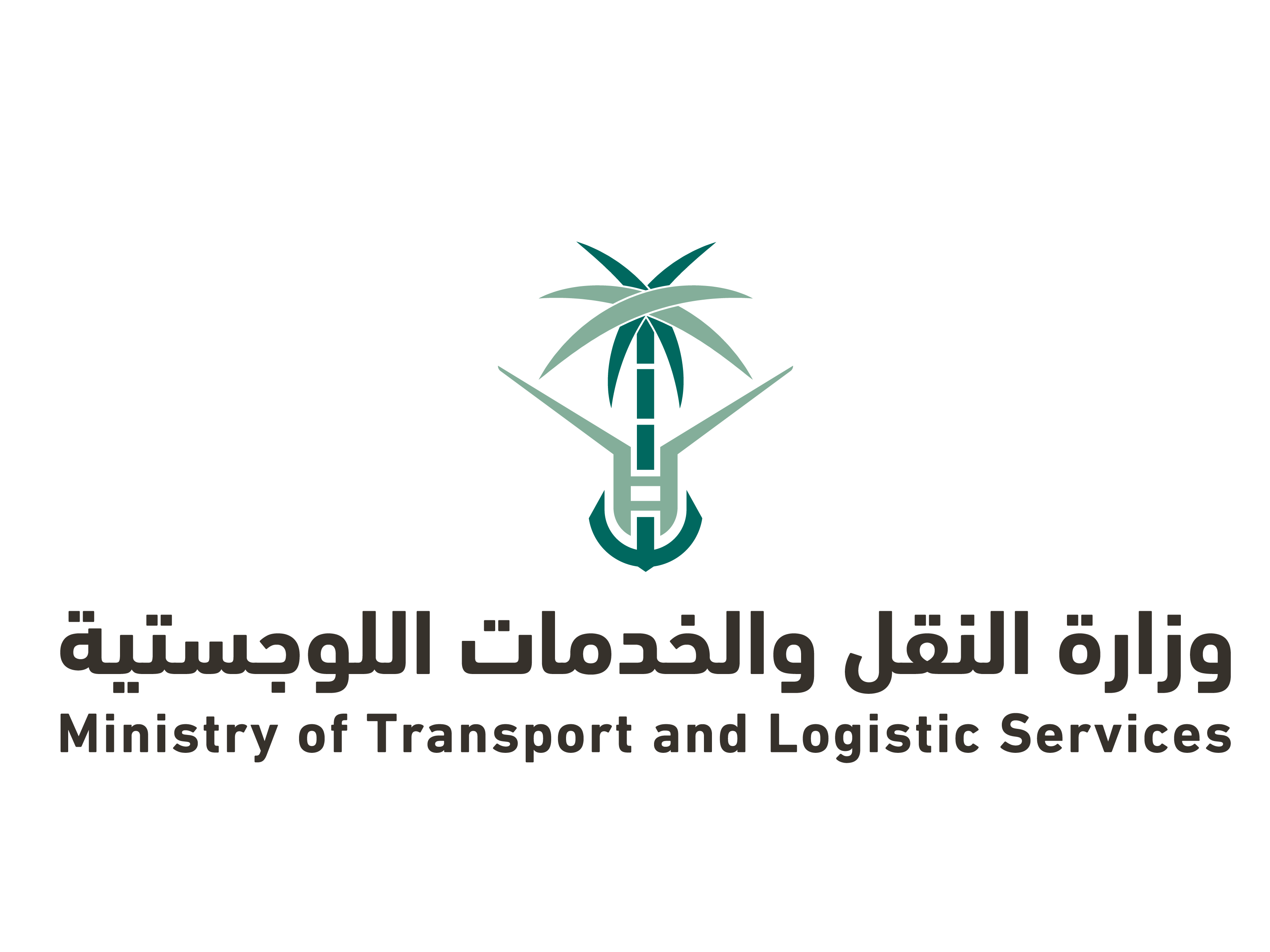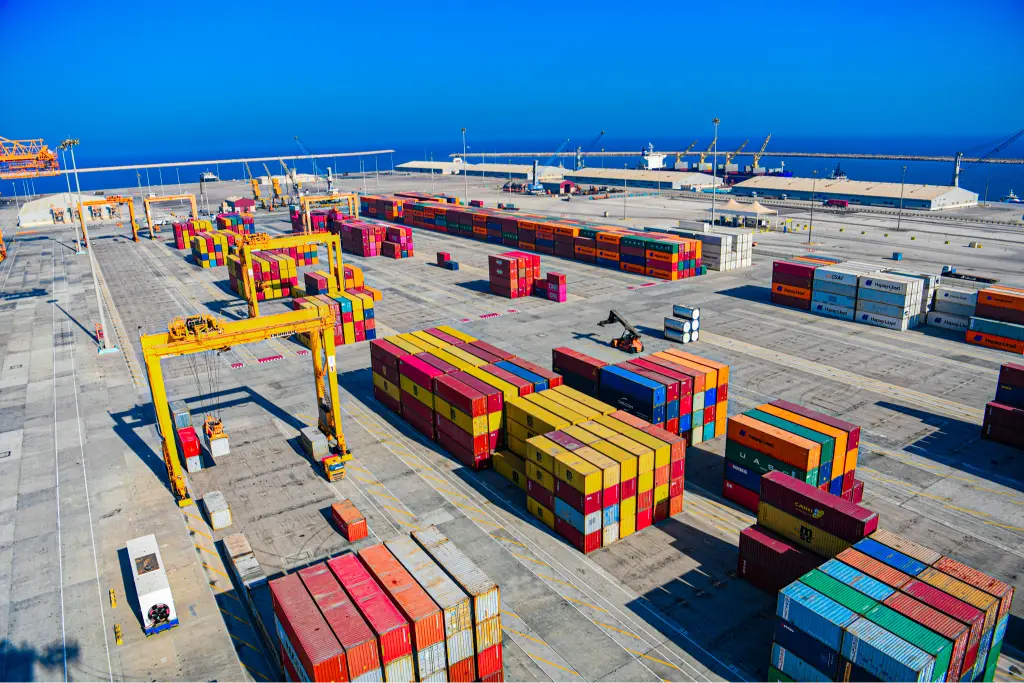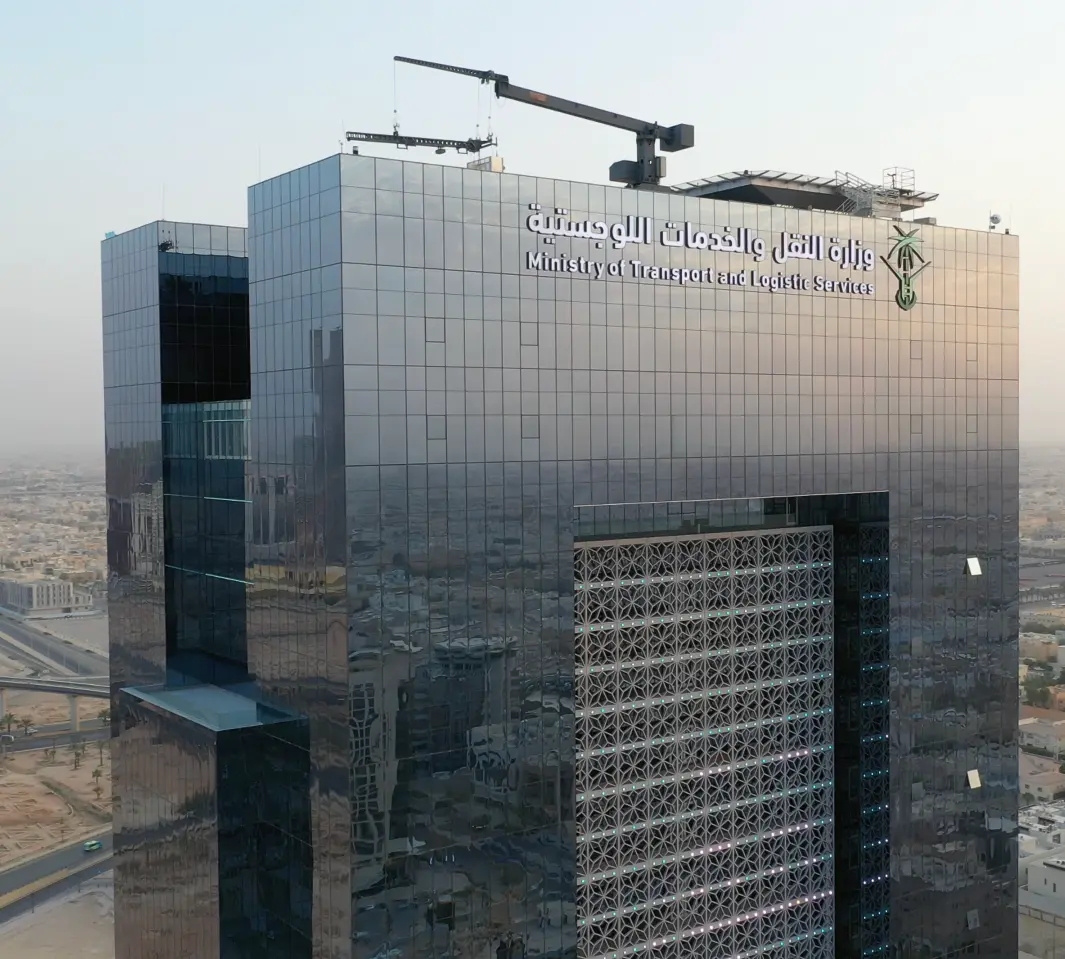About MOTLS
About MOTLS
Vision
To be a leading institution that drives the transport and logistics sector, solidifying the Kingdom's position as a global logistics hub and a model for integrated transportation
Mission
To be a leading institution that drives the transport and logistics sector, solidifying the Kingdom's position as a global logistics hub and a model for integrted transportation
Mission
Achieve the integration between all transport sectors, land, maritime and air to meet the needs of the Kingdom by raising the levels of safety, energy rationalization and enhance the operation and performance efficiency to provide efficient services to all the beneficiaries.
Mission
Achieve the integration between all transport sectors, land, maritime and air to meet the needs of the Kingdom by raising the levels of safety, energy rationalization and enhance the operation and performance efficiency to provide efficient services to all the beneficiaries.
ESTABLISHMENT
Develop the transportation sector to position the Kingdom as a logistics hub connecting the three continents, while promoting sustainable economic development and competitiveness in alignment with Saudi Vision 2030
- Raising the level of land, maritime and air transport services by allowing the private sector investments and give it the opportunity to finance and operate the transport sector, with worldwide technical high-quality standards.
- This window will transfer the international expertise and experience to the ministry and encourage the development of the national carrier.
- Expand the application of intelligent transport systems on roads and in all types of vehicles to raise the level of safety and increase the efficiency.
- Enact the legislations governing transport, and support the private sector to establish and operate multimodal transport stations for passengers, goods, and logistics growth centers.
- Raise the performance efficiency and enhance the quality and transparency standards in the Ministry's activities by automating the work, develop the procedures, display them on appropriate channels of communication, and raise the efficiency of the workforce.
- Expand the application of electronic systems in the transport sectors to achieve complete electronic transactions transformation.
- Expand funding sources to establish and maintain the transport facilities.
- Study the unification of the transport sectors in the Kingdom under one umbrella, which will lower the expenses, increase revenues and enhance the efficiency of operation and performance, in addition, to unify the procedures.

The Ministry of Transport and Logistic Services Oversees Various Modes of Transportation, Including Land, Maritime, Air, Railways, Roads, Postal Services, and Logistics.
The Ministry oversees multiple affiliated entities, including the General Authority of Civil Aviation, the General Authority of Transport, the General Authority of Roads, the General Authority of Ports, the Saudi Post Corporation (SPL), and the Saudi Arabia Railway Company (SAR). It is dedicated to implementing various projects, programs, and initiatives that facilitate the movement of people through all land, sea, and air ports, both within and outside the Kingdom. The transportation and logistics sector is a vital enabler for numerous national sectors, such as tourism, trade, and pilgrimage, contributing significantly to the prosperity of national industries and supporting the local economy.

The Kingdom's leadership has consistently demonstrated strong support for this vital sector, recognizing its significant impact and substantial benefits in serving the population and facilitating the movement of traders, goods, products, and commodities.
As a result of the unlimited support from the wise leadership, the transportation and logistics sector has witnessed a qualitative leap in the past years. In mid-2021, His Royal Highness Prince Mohammed bin Salman bin Abdulaziz, Crown Prince, Prime Minister, Chairman of the Council of Ministers, and Chairman of the Supreme Committee for Transport and Logistics, announced the launch of the National Transport and Logistics Strategy (NTLS). This strategy aims to solidify the Kingdom's position as a global logistics hub connecting the three continents, enhance all transportation services and means, and promote integration in the logistics services system and modern modes of transportation to support the comprehensive development journey in the Kingdom. The strategy includes a package of major projects that empower the achievement of economic and social targets, as well as the adoption of effective governance models to enhance institutional work in the transportation system.
The strategy also focuses on developing infrastructure, launching multiple logistics platforms and zones in the Kingdom, implementing advanced operating systems, and promoting effective partnerships between the government system and the private sector to achieve four main objectives: enhancing the Kingdom's position as a global logistics hub, improving the quality of life in Saudi cities, achieving balance in the general budget, and enhancing the performance of the government system.

In August 2023, His Royal Highness the Crown Prince announced the launch of the General Plan for Logistics Centers, which aims to develop the infrastructure of the logistics sector in the Kingdom, diversify the local economy, and enhance the Kingdom's position as a leading investment destination and a global logistics hub.
The General Plan for Logistics Centers include a total of 59 centers with a combined area exceeding 100 million square meters. This includes 12 logistics centers for the Riyadh region, 12 logistics centers for the Makkah region, 17 logistics centers for the Eastern region, and 18 logistics centers in the remaining regions of the Saudi Kingdom. Currently, work is on progress on 21 centers, with completion of all centers expected by 2030. These logistic centers will enable local industries to efficiently export Saudi products and support e-commerce by facilitating connections between logistics centers and distribution centers within the Kingdom's regions, cities, and provinces. Additionally, they will provide high-level tracking capabilities and facilitate the issuance of logistics activity licenses, especially after the launch of the unified logistics license in 2021. Over 1,500 local, regional, and international logistics companies have been granted licenses, and the "Fasah" initiative has been launched to expedite customs clearance within two hours in cooperation with relevant government entities.
The logistics services sector represents a promising pillar for economic and developmental diversification in the Kingdom. It is currently witnessing numerous qualitative initiatives and significant developments aimed at achieving a major leap towards the growth of the sector and expanding its economic and developmental contributions. The Ministry of Transport and Logistics Services is working according to a methodology that seeks to develop the logistics services industry, enhance export strategies, expand investment opportunities, and foster partnerships with the private sector. These efforts aim to further strengthen the logistics sector and maximize its potential in driving economic growth and development in the Kingdom.

In April 2023, the Kingdom Achieved a New Milestone in the Transportation and Logistics Sector by Jumping 17 Places in Logistics Performance Index (LPI) Issued by the World Bank.
The Kingdom advanced to the 38th position out of 160 countries globally in terms of logistics efficiency. The Ministry of Transport and Logistics Services recently launched a package of initiatives in the logistics sector to enhance performance efficiency, reengineer processes, and implement best global practices in this vital sector. These initiatives aim to strengthen the Kingdom's position as a global logistics hub. Among these initiatives was the launch of the Integrated Logistics Zone at King Salman International Airport in Riyadh, with Apple being announced as the first international investor in the zone. Additionally, the national strategy for transport and logistics services aims to propel the Kingdom to the list of the top 10 countries globally in the Logistics Performance Index by 2030.

The Vision Themes


Strengthen Islamic values & national identity.

Offer a fulfilling and healthy life

Grow & diversify the economy

Increase employment

Enhance government effectiveness

Enable social responsibility
Discover our journey through the years
Find out more about The Ministry





